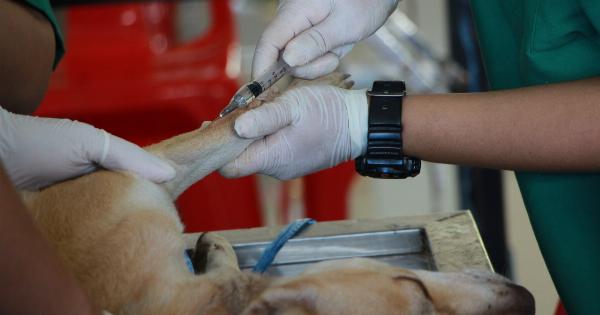As a pet owner, it’s essential to consider all aspects of responsible ownership, including the potential risks associated with your furry friend.
While dogs are often regarded as loyal companions, they are still animals with natural instincts, and there is always a chance that they may become aggressive or bite someone. Dog attacks can happen unexpectedly, and when they do, they can result in serious injuries, medical expenses, and legal consequences.
Understanding Dog Attacks and Their Impact
Dog attacks can occur for various reasons, including fear, territoriality, protection of their owner, or feeling threatened.
Unfortunately, any breed of dog has the potential to exhibit aggression, and certain breeds may have a higher tendency towards aggression due to genetics or upbringing.
When a dog attacks and bites someone, it can have severe physical and emotional consequences.
Injuries from dog bites can range from minor scratches and puncture wounds to more severe injuries like deep lacerations, tissue damage, broken bones, and even permanent scarring. Victims of dog attacks may also suffer from emotional trauma, fear, and anxiety as a result of the incident.
Health Insurance Coverage for Dog Attacks
If you or a loved one are unfortunate enough to be involved in a dog attack, you may wonder if your health insurance will cover the resulting medical expenses.
The answer to this question can vary depending on several factors, such as your specific health insurance policy, the circumstances of the incident, and the laws in your jurisdiction.
Health insurance policies typically cover medical expenses resulting from unexpected accidents or injuries, including dog bites. However, it’s important to review your policy carefully and understand its specific coverage.
Some health insurance policies may have exclusions for injuries caused by animals or specifically exclude coverage for dog attacks. Others may cover such injuries but may have limitations or require additional documentation.
If your health insurance policy does cover dog attacks, you may still be responsible for deductibles, co-pays, or out-of-pocket expenses, depending on the terms of your policy.
It’s advisable to contact your health insurance provider directly to discuss the details of your coverage and what costs you can expect to be responsible for in the event of a dog attack.
Homeowner’s or Renter’s Insurance and Dog Attacks
In addition to health insurance, homeowner’s or renter’s insurance policies may also offer coverage for dog attacks. These policies typically include personal liability coverage that can protect you if your dog bites or injures someone.
However, it’s important to note that not all homeowner’s or renter’s insurance policies automatically cover dog attacks, and some insurers may have specific breed exclusions or require additional coverage endorsements.
Similar to health insurance, homeowner’s or renter’s insurance policies may have limitations or exclusions regarding coverage for dog attacks.
It’s crucial to review your policy carefully and consult with your insurance provider to understand the specifics of your coverage. Additionally, insurers may take into account factors such as the breed of the dog, its history of aggression, and any previous incidents when determining coverage eligibility and premium rates.
Legal Consequences and Pet Insurance
In some cases, if your dog attacks and injures someone, you may face legal consequences, including potential lawsuits and financial liability for the victim’s medical expenses, rehabilitation costs, lost wages, and pain and suffering.
Legal fees associated with defending yourself in such cases can quickly become substantial, even if you are not found liable.
If you are concerned about potential legal issues and financial liability resulting from a dog attack, you may want to consider pet insurance.
While pet insurance primarily focuses on covering veterinary expenses, some policies also offer liability coverage for dog-related incidents. This type of coverage can help protect you financially in case your dog causes harm to someone or damages someone’s property.
Taking Preventative Measures
Preventing dog attacks is crucial for the safety and well-being of both your dog and others. As a responsible pet owner, there are several steps you can take to reduce the risk of dog aggression or attacks:.
- Socialize your dog from a young age and expose them to different people, animals, and environments.
- Train your dog using positive reinforcement techniques to reinforce good behavior and proper socialization.
- Keep your dog on a leash when in public and ensure they are securely contained within your property.
- Supervise interactions between your dog and children or unfamiliar individuals.
- Spay or neuter your dog, as this can reduce aggression-related behaviors.
- Be aware of your dog’s body language and any signs of fear, anxiety, or aggression.
By taking these preventative measures, you can significantly decrease the chances of your dog causing harm to others and potentially protect yourself from the legal and financial consequences of a dog attack.
Conclusion
While most pet owners hope to never experience a dog attack, it’s essential to be prepared and understand your insurance coverage options.
Health insurance policies may provide coverage for medical expenses resulting from dog bites, although specific terms and limitations can vary. Homeowner’s or renter’s insurance policies may also offer liability coverage for dog attacks, depending on the policy and any breed-specific exclusions.
Additionally, considering pet insurance with liability coverage can provide an extra layer of protection.
Ultimately, responsible pet ownership, proper training, and preventative measures are the best ways to prevent dog attacks and protect both your dog and others from harm.
By prioritizing safety and being aware of insurance options, you can ensure that you are prepared for any unfortunate circumstances that may arise.



























